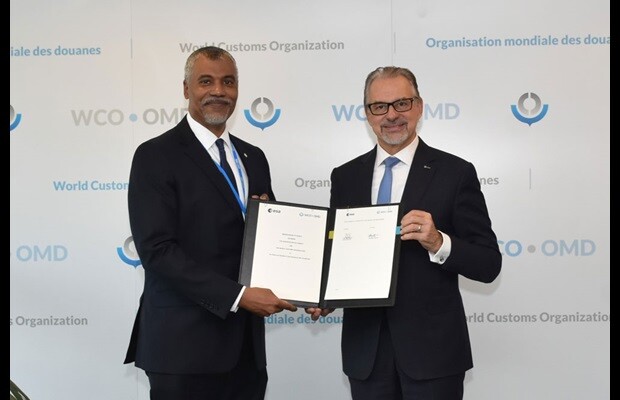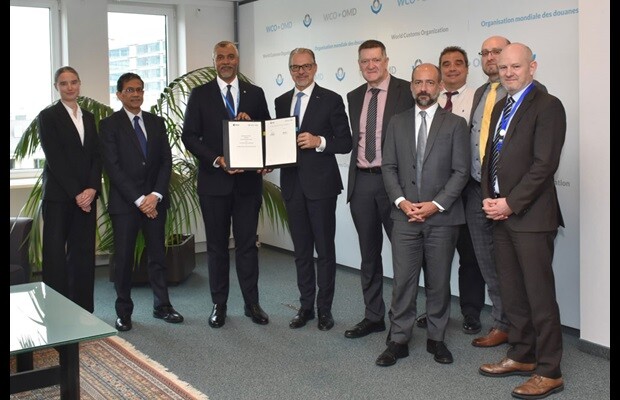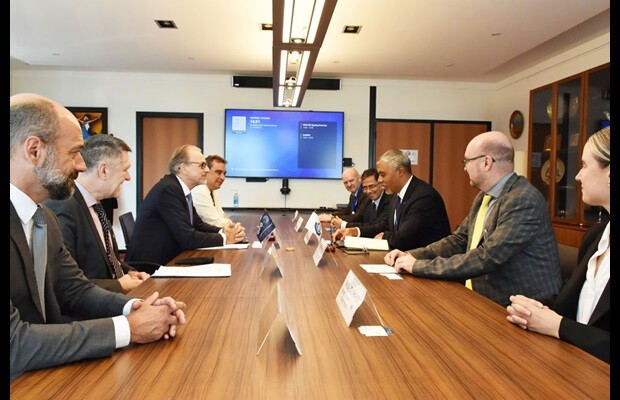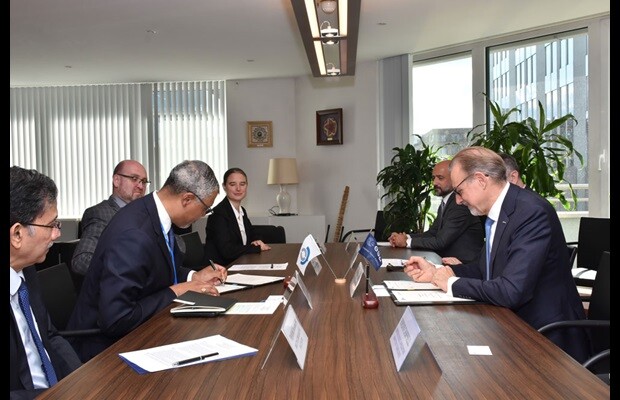
A new chapter for Customs and Space collaboration : WCO and ESA sign Memorandum of Intent
BRUSSELS : This Thursday marks an important step in the collaboration between the World Customs Organization (WCO) and the European Space Agency (ESA). The WCO, an intergovernmental organization responsible for enhancing the effectiveness and efficiency of Customs administrations worldwide, plays a critical role in international trade and border security. ESA, a leader in space exploration and innovation, pioneers Europe’s space capabilities to address both scientific and societal challenges. Together, they will sign a Memorandum of Intent (MoI) that aims to strengthen security and crisis response efforts through space-enabled solutions.



”The signing of this MoI marks a pivotal moment in leveraging space technologies for Customs. Through their collaborative efforts, the WCO and ESA are laying the foundation for technological innovation in Customs’ domains of civil security, safety and crisis management”, said WCO Secretary General Ian Saunders.
“In the context of constant innovation, the Rapid and Resilient Crisis Response Accelerator of ESA seeks to federate capabilities to meet the stringent user requirements of the WCO. Through this MoI, ESA and the WCO expect to use Earth Observation to support economic assessments and streamline effective Customs operations”, stated ESA Director General Josef Aschbacher.
The signing of the MoI follows the establishment of the framework of ESA’s Rapid and Resilient Crisis Response Accelerator (R3 Accelerator), a program designed to accelerate the use of space technology in the domains of civil security, safety and crisis management.
Since 2019, the WCO has explored the opportunities of space-based services for Customs through research, as well as by maintaining a constant dialogue with ESA and other stakeholders. This work resulted in the inclusion of the use of satellite data and services in ongoing projects.
In particular, the COLIBRI project established the first spatial data infrastructure at the WCO that leverages satellite data services from ESA’s Sentinel missions to tackle challenges posed by illicit trafficking. The WCO Fragile Borders Action Plan, adopted by the WCO Council in June 2023, integrates the use of satellite data under the umbrella of GEOINT (geospatial intelligence) to improve the management of fragile border areas. In this context, the West Africa Security Project (WASP) is aimed at reducing the security threat in the region by restricting the cross-border movement of goods used in terror attacks. The WASP is training selected Customs officials to use Geographic Information Systems (GIS) to store, visualize, analyze and interpret geolocated data from a range of sources, including Earth observation data, in response to specific border control scenarios.
The WCO-ESA partnership seeks to carry out joint activities to support the development and further use of space-enabled solutions for civil security, safety and crisis management, responding to user identified needs in Europe and worldwide. The WCO will provide ESA with the understanding of the needs and challenges Customs administrations face, while ESA can support Customs with their knowledge on space-enabled solutions to tackle these challenges facilitating the work of Customs administrations and consequentially enhancing the achievement of their mission.

